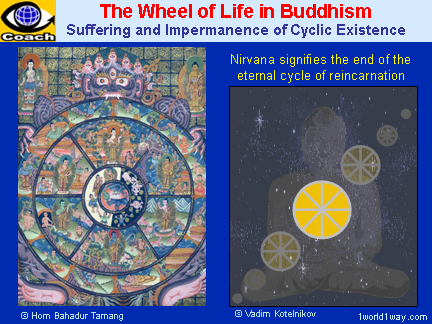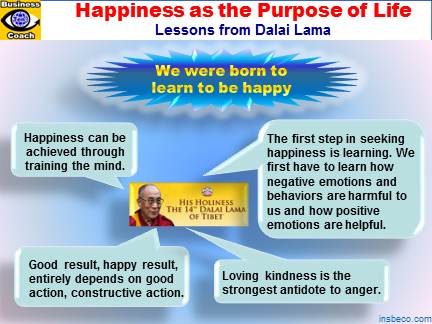| |
|
The
Art of Happiness in Buddhism
Abhidamma is an ethical-psychological teaching
presented in the body of ancient
Buddhist scriptures of the same name. Based on various techniques of
Buddhist mind training, the Abhidamma represents the systematic knowledge of
the Dharma, or "good teaching" – that is, the liberating,
happiness-promoting way of
life.
Dharma strategies for self-transformation help
you feel at home in your body, protect
well-being through mindfulness, and perceive reality with clarity and
wisdom.
|
|
|
| |
Dharma strategies help you deal skillfully with painful events and negative
emotions, and also offer direct ways of promoting positive emotions such as
cheerfulness, sympathetic joy, and
compassion.
|
|
 |
| |
|
"The first step in seeking
happiness
is learning. We first have to learn how negative emotions and behaviors are
harmful to us and how positive emotions are helpful. We must also realize
that these negative emotions are not only very bad and harmful to one
personally, but are also harmful to society and the future of the whole
world," teaches Dalai Lama
|
|
|
| |
"Everyone wants to
be
happy and no one wants to suffer, but very few people understand the real
causes of
happiness and suffering.
We tend to look for
happiness outside ourselves, thinking that if we had the right house, the
right car, the right job, and the right friends we would be truly happy."
|
|
 |
| |
|
We spend almost all our time adjusting the
external world, trying to make it conform to our wishes. All our life we
have tried to surround ourselves with people and things that make us feel
comfortable, secure, or stimulated, yet still we have not found pure and
lasting happiness. It is time we sought happiness from a different source.
Happiness is a
state of mind, so the real source of happiness must lie within the mind, not
in external conditions. If our mind is pure and
peaceful
we shall be happy, regardless of our external circumstances, but if it is
impure and unpeaceful we can never be truly happy, no matter how hard we try
to change our external conditions. We could change our home or our partner
countless times, but until we change our restless, discontented mind we
shall never find true happiness.
|
|
|
| |
|
What's remarkable is this amazing link between
happiness and kindness towards others. Happier people are more likely to
help the other person. But the Dalai Lama feels that it works the other way
around as well. That the deliberate cultivation of kindness and compassion
and caring and tolerance and forgiveness and these type of things will make
one a happier person.
|
|
|
|
|